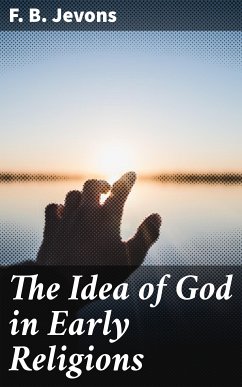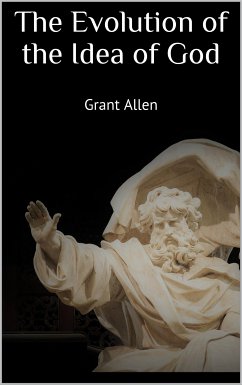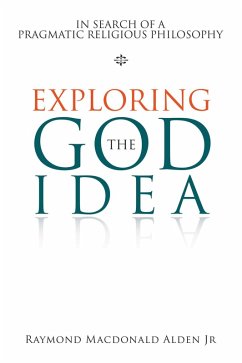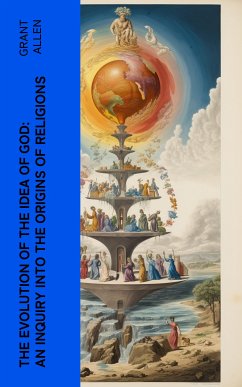
The Idea of God in Early Religions (eBook, ePUB)
Versandkostenfrei!
Sofort per Download lieferbar
1,99 €
inkl. MwSt.
Weitere Ausgaben:

PAYBACK Punkte
0 °P sammeln!
In "The Idea of God in Early Religions," F. B. Jevons embarks on an intellectual exploration of the evolution of religious thought across various ancient cultures. Through meticulous analysis and comparative methodology, Jevons elucidates the development of theistic concepts, emphasizing how early human civilizations articulated their understanding of the divine through myths, rituals, and social practices. His literary style reflects a scholarly rigor combined with accessibility, allowing both academics and general readers to engage with complex ideas. The book situates its discourse within t...
In "The Idea of God in Early Religions," F. B. Jevons embarks on an intellectual exploration of the evolution of religious thought across various ancient cultures. Through meticulous analysis and comparative methodology, Jevons elucidates the development of theistic concepts, emphasizing how early human civilizations articulated their understanding of the divine through myths, rituals, and social practices. His literary style reflects a scholarly rigor combined with accessibility, allowing both academics and general readers to engage with complex ideas. The book situates its discourse within the broader context of the nascent fields of anthropology and comparative religion, shedding light on the multifaceted nature of humanity's quest for meaning in the divine. F. B. Jevons, an esteemed scholar of religion and mythology, drew inspiration from a rich academic environment marked by the burgeoning interest in the interconnections between culture and belief systems during the late 19th and early 20th centuries. His systematic approach to religious studies-infused with insights from classical philosophy and emerging anthropological theories-reflects a deep-seated belief in the shared human experience as a foundation for understanding the divine. This insightful work is highly recommended for readers seeking to comprehend the foundational elements of religious belief and the universal attempts to grapple with metaphysical questions. Jevons' profound insights not only illuminate ancient worldviews but also invite contemporary reflection on the nature of belief and the enduring quest for the divine.
Dieser Download kann aus rechtlichen Gründen nur mit Rechnungsadresse in A, B, BG, CY, CZ, D, DK, EW, E, FIN, F, GR, H, IRL, I, LT, L, LR, M, NL, PL, P, R, S, SLO, SK ausgeliefert werden.













